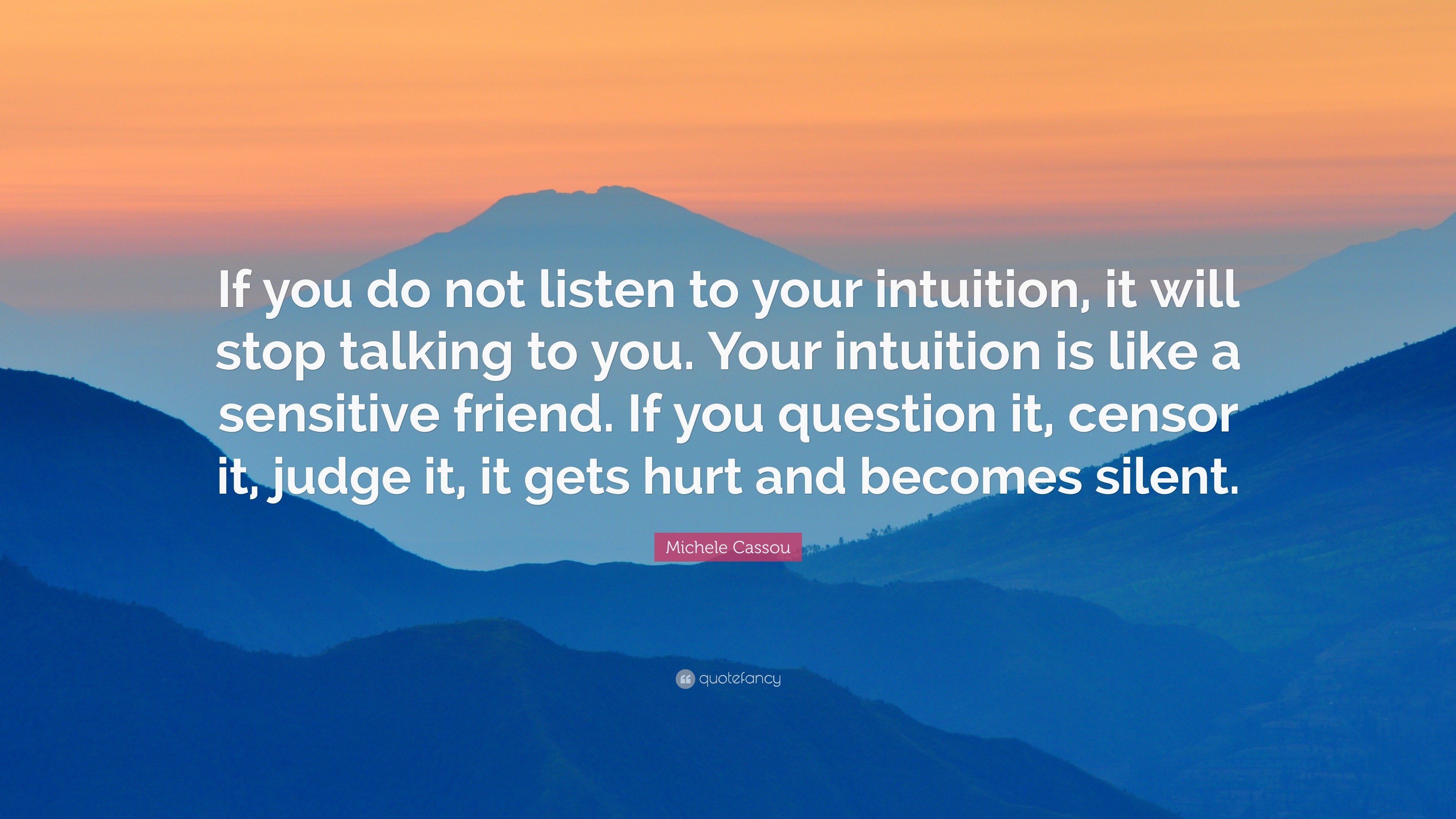How Does Your Intuition Speak To You

In a world increasingly dominated by data and algorithms, a quieter, more subtle form of intelligence often gets overlooked: intuition. But how does this 'gut feeling,' this inner knowing, actually communicate with us? While elusive and often dismissed, intuition plays a significant role in decision-making, creativity, and even survival.
This article explores the multifaceted ways intuition manifests, drawing from psychological research, neurological studies, and anecdotal evidence to understand how we can better recognize and harness this powerful internal compass. It delves into the science behind intuition, examining the brain processes involved and the various forms it can take, offering practical advice on cultivating and trusting your inner voice, while acknowledging the potential pitfalls of relying solely on instinct.
The Science of Gut Feelings
For years, intuition was relegated to the realm of pseudoscience. However, modern neuroscience is beginning to shed light on the biological mechanisms behind it.
According to Dr. Antonio Damasio, a renowned neuroscientist, intuition is heavily linked to the somatic marker hypothesis. This theory suggests that our bodies store emotional memories associated with past experiences.
When faced with a new decision, the brain unconsciously activates these somatic markers, providing a 'gut feeling' that guides us towards or away from certain options.
Different Voices of Intuition
Intuition doesn't speak in a single, uniform voice. It manifests in various ways, often subtle and easily missed. Recognizing these different forms is key to understanding its messages.
Some experience intuition as a physical sensation – a knot in the stomach, a racing heart, or a sudden chill. Others describe it as a flash of insight, a sudden understanding that appears seemingly out of nowhere.
Still others find it comes in the form of recurring thoughts or images, dreams, or a persistent feeling of unease or excitement. The key is to pay attention to what feels "off" or particularly resonant.
The Role of the Unconscious Mind
Intuition is often attributed to the processing power of the unconscious mind. This vast reservoir of information, experiences, and patterns operates outside of our conscious awareness.
According to psychologist Carl Jung, intuition is one of the four primary psychological functions, alongside thinking, feeling, and sensing. He believed that intuitive individuals excel at perceiving possibilities and hidden meanings.
Our unconscious can rapidly analyze complex situations and identify patterns that our conscious mind might miss, leading to intuitive insights.
Cultivating and Trusting Your Intuition
While everyone possesses intuition, some are more attuned to it than others. However, it's a skill that can be developed and honed with practice.
Meditation and mindfulness practices are crucial for quieting the mental chatter and creating space for intuitive signals to emerge. Journaling can also help you identify patterns and track your intuitive hits and misses.
Spending time in nature, engaging in creative activities, and simply slowing down can also enhance your connection to your inner wisdom.
"Trusting your intuition can be risky, but not trusting it can be even more dangerous." - a quote often attributed to various successful entrepreneurs and thinkers, highlights the importance of weighing intuitive guidance against rational analysis.
The Pitfalls of Intuition
While powerful, intuition isn't infallible. It's essential to recognize its limitations and potential biases.
Intuition can be influenced by past experiences, personal prejudices, and emotional states. Relying solely on intuition without critical thinking can lead to flawed decisions.
Confirmation bias, the tendency to seek out information that confirms existing beliefs, can also distort intuitive judgments. It's crucial to balance intuition with logical reasoning and objective data.
"Intuition is a very powerful thing, more powerful than intellect, in my opinion." - Steve Jobs, highlighting the value he placed on intuitive thinking.
Looking Ahead: Intuition in the Age of AI
As artificial intelligence becomes more sophisticated, the unique human capacity for intuition will become even more valuable. AI excels at data analysis and pattern recognition, but it lacks the nuanced understanding and creative leaps that intuition provides.
The future likely holds a synergistic relationship between human intuition and artificial intelligence, where AI provides data-driven insights and humans use their intuition to interpret and apply these insights in creative and innovative ways. By understanding how our intuition speaks to us, we can better navigate the complexities of the modern world and unlock our full potential.
Ultimately, understanding how your intuition speaks to you is a journey of self-discovery. It requires patience, self-awareness, and a willingness to listen to the quiet whispers of your inner wisdom. By cultivating this inner connection, you can unlock a powerful source of guidance and navigate life with greater clarity and confidence.


















